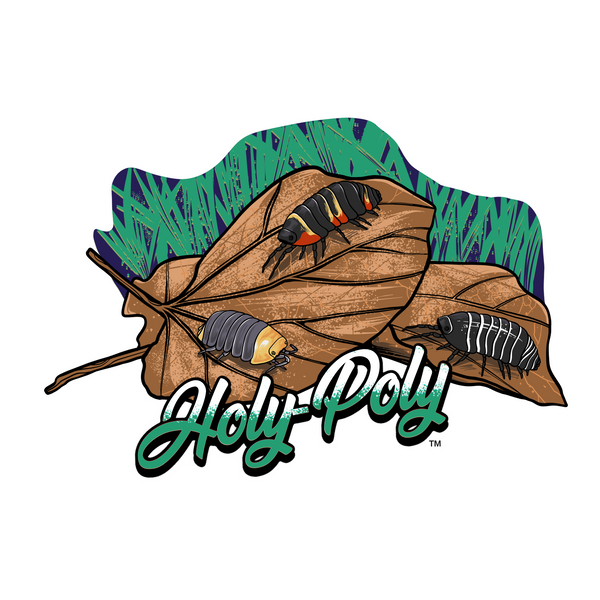2. Overstocking - Some pod types breed rather quickly and can overwhelm their enclosures. This can cause the entire system to go out of balance and crash (forming an apocalyptic event for your colony). To avoid this, you should not release your pods into the wild (unless they were originally wild caught from that same area), here are some responsible solutions to consider:
- Enlarge the enclosure.
- Split the colony into multiple enclosures.
- Use some as feeders to other inhabitants (such as reptiles).
- Sell some, give some away, etc.
- Try selling some wholesale to a local reptile or pet shop.
3. Temperature - too hot or too cold can be harmful to isopods. For this reason, many hobbyists and vendors have strict rules on shipping (or do not ship at all). Different pod types can tolerate different temperatures, and we recommend you research the needs of your pods.
4. Pesticides or Chemicals - even through food, pesticides can be harmful to your pods. It is recommended to use organic foods and pesticide-free leaf litter & substrate. Additionally, chemicals are used at water treatment plants to deliver clean water to most homes. These chemicals may not affect us much but can negatively affect your pods. It is recommended to use filtered water, and to allow these chemicals to evaporate (by letting the water sit out for 24 hours at room temperature).
5. Parasites – Deal with reputable breeders, do not just bring in wild isopods from outside (this can harm other enclosure inhabitants). If collecting your own leaf litter and substrate, be sure to sterilize them by baking, boiling, or freezing (depending on what you collect). Research the method that suits your needs best.
6. Predators - Depending on what is housed with them, predators can pick off pods as feeders.
7. Too much moisture – Even though terrestrial (land) isopods have gills, they can drown if under water too long.
8. Improper Ventilation - proper ventilation is needed to ensure oxygen can get in, and harmful gases such as ammonia and carbon dioxide can get out.
9. Old Substrate – Depending on the size of your colony and enclosure, over time substrate may need to be changed out. Old substrate can become compact, and some pods may not be able to burrow out (leaving them to eventually suffocate). Other issues may stem from too many droppings (or frass) in the original substrate. Research the best options to replace your substrate.
10. Mold - some molds can be toxic to your little friends. If they are not actively eating it, consider removing it.
*This is not an all-inclusive list, but tips for some of the most common colony crashes.

